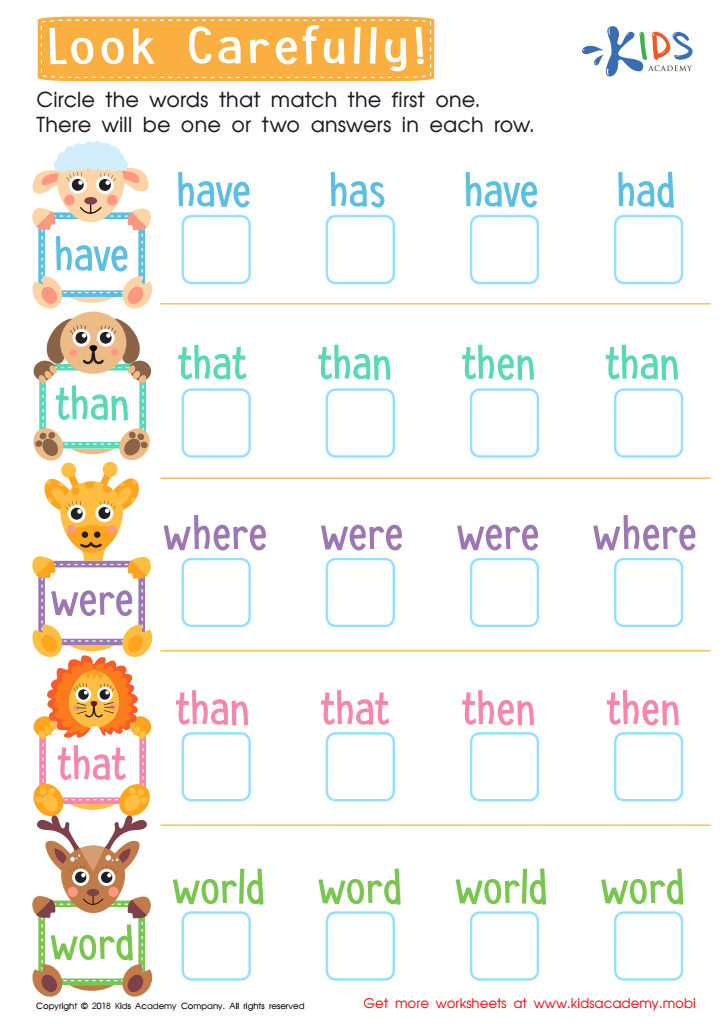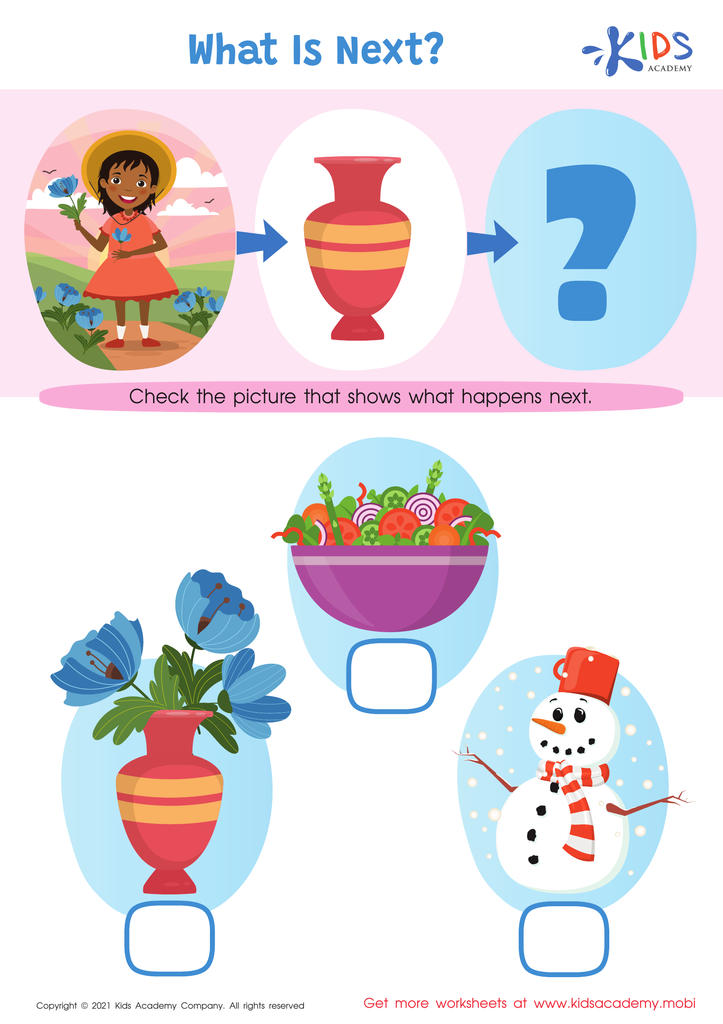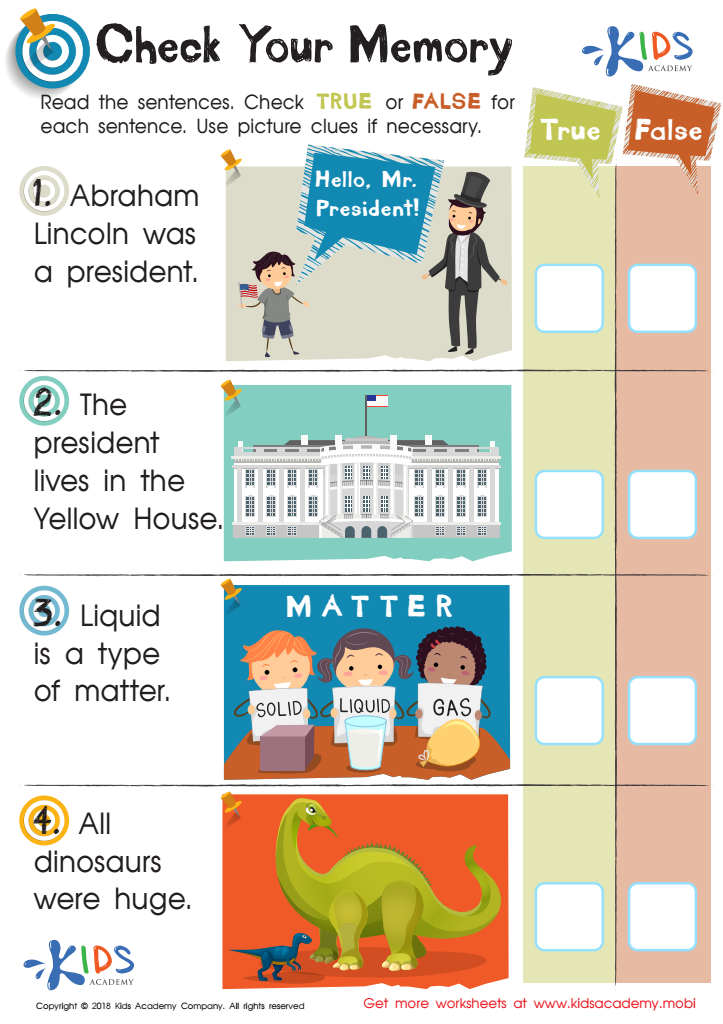Pattern recognition Reading Comprehension Worksheets for Ages 3-9
3 filtered results
-
From - To
Unlock your child's potential with our Pattern Recognition Reading Comprehension Worksheets designed for ages 3-9. These engaging worksheets combine the fun of pattern recognition with reading comprehension to enhance critical thinking skills. Each activity is carefully crafted to bolster early literacy, logical reasoning, and analytical abilities. Perfect for young learners, these worksheets provide foundational skills while keeping children excited and motivated. Educators and parents will appreciate the clear, age-appropriate tasks that make learning both enjoyable and effective. Boost your child’s academic readiness with these excellent interactive resources from Kids Academy. Explore and start building a brighter future today!


Look Carefully Worksheet


What is Next? Worksheet


Check Memory Worksheet
Pattern recognition and reading comprehension are foundational skills that profoundly impact a child's cognitive development and future academic success, especially for ages 3-9. At this developmental stage, children's brains are highly receptive to learning, making it a prime time to introduce tools that will build critical thinking and problem-solving abilities.
Pattern recognition helps children make sense of the world around them. By identifying and understanding patterns, kids learn to predict and make educated guesses, which are essential for solving math problems, understanding the layout of stories, and even developing language skills. When children recognize patterns in words and sentences, they decode new vocabulary more easily, enhancing their reading fluency and comprehension.
Reading comprehension, on the other hand, is vital for academic achievement across subjects. When children understand what they read, they can absorb new information, follow instructions, and even enjoy a good story, all of which propel their learning experiences. Comprehension skills developed early on lead to better school performance, greater confidence, and a lifelong love of reading.
Therefore, fostering pattern recognition and reading comprehension should be a priority for parents and teachers, as these skills build a strong foundation for future educational endeavors and everyday problem-solving. Investing in these areas during early childhood sets the stage for a child's lifelong success.
 Assign to My Students
Assign to My Students




















